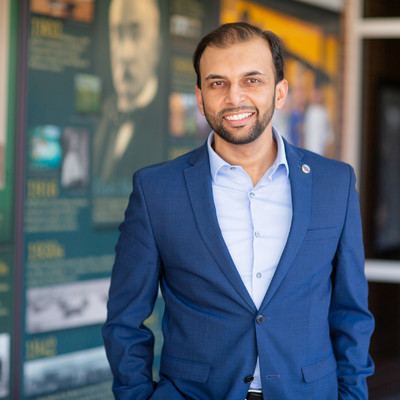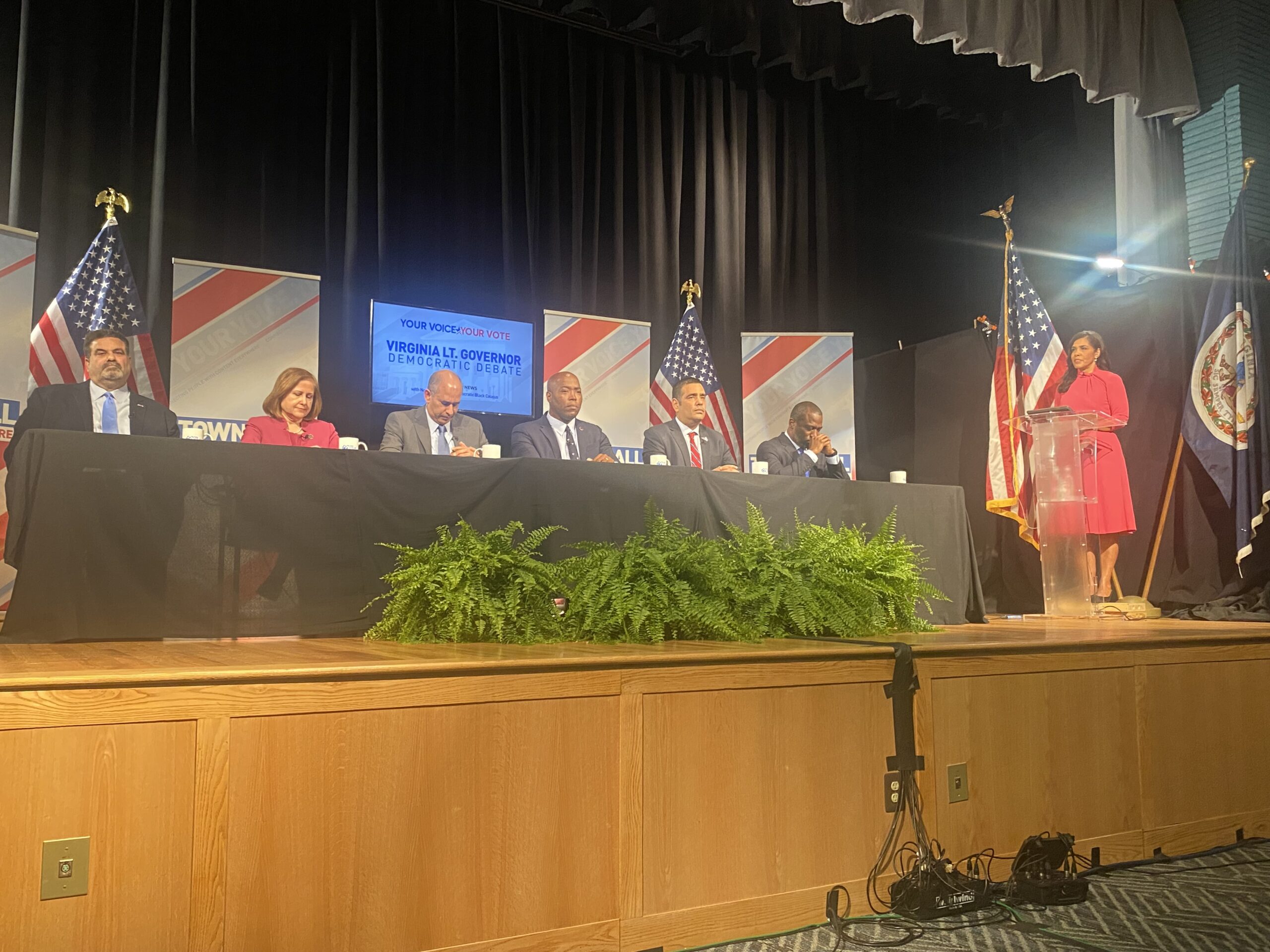Can Qasim Rashid Be a United Force for Muslims?
As the Congressional VA-01 District race enters its final week, Democratic candidate Qasim Rashid has gained a lot of momentum from progressives in his battle against his Republican opponent Rob Wittman. Rashid continues to receive endorsements from the Working Families Party to Democratic Senators. In the midst of the campaign, he has also had to fend off attacks from Wittman, from disputing allegations of financial impropriety to dealing with a political action committee that was formed to attack his campaign. Wittman has denied any association with the PAC.
However, there is one challenge that he will need to address going forward, and that is regarding his relationship with Sunni Muslims. Rashid has often discussed how his faith is essential to how he governs and how he lives his own life. He is Ahmadiyya. They are a sect which was founded by Mirza Ghulam Ahmad in 1882 in Punjab, British India, a region that is now divided between India and Pakistan. Mirza Ghulam Ahmad claimed to the messiah and a receiver of revelations.
This is what most clearly differentiates Ahmadiyyas from Sunni or Shia Muslims, who believe that Muhammad was the final Prophet of God before the Day of Judgement. The theological difference is significant for Sunni Muslims, who make up between 87% and 90% of Muslims globally and 55% of Muslims in the US according to the Pew Research Center. Many Sunni Muslims to believe, that on a theological basis, Ahmadiyya followers fall outside of the fold of Islam.
This brings up the Islam jurisprudence (fiqh) principle of takfir, a Christian parallel would be excommunication. It is essentially when one Muslim declares another Muslim, or any individual, as a non-believer (kafir). There is a deep, nuanced history of this legal principle in Islamic jurisprudence (fiqh) throughout Islamic history and in other nation-states in the contemporary era. For example, in Pakistan, where Qasim Rashid was born, Ahmadiyya are not considered Muslim by the Pakistani government and are restricted from calling themselves that or from building mosques, among other forms of discrimination.
Within the United States, where Islamic jurisprudence are subservient to American laws, this is not the case. It is purely an ideological stance taken on the part of Muslims within the United States with no material impact on members of other sects. Other than the existence of separate religious circles or spaces, often by their own choice. An Ahmadiyya group, for example, chose to purchase the former church next to Dar al Noor Islamic center in 2019, over 15 years after the Muslim Association of Virginia established itself there. Thus, it reinforces the idea that Ahmadiyya must and do have their own mosques for worship. That is only one part of the issue, as there is a significant amount of Sunni Muslims within Prince William County. The other part of the issue is his beliefs on the topic of takfir.
The idea of takfir is often considered controversial. It has a varied history within the Islamic faith tradition. America in a post 9/11 world has seen a rise in xenophobic acts, in both political and societal spheres. The potential of using this rhetoric to justify anti-Muslim sentiments could include most significantly, a fear of violent “Islamic terrorism” fueled by extremism. Comments such as the tweet above also reinforces the idea that there is a ‘creeping sharia’ seeking to implement Islamic law in America.
Muslims feel a pressure to “normalize” beliefs that contradict traditional interpretations as not to be viewed as extreme/radical and thus subject to the security and sanctions that come with such a label. There is a concern that policies will be created that are not beneficial to Sunni Muslims. The one Muslim political action committee (PAC) that did endorse Qasim, Emgage, is no longer a part of The US Council of Muslim Organizations (USCMO) because of its ties to and work with ”anti-Muslim and anti-Palestinian groups” according to a statement put out by the organization.
Raja Abdulhaq, Executive Director of the Islamic Leadership Council of New York a self described “umbrella organization for over 90 organizations and mosques,” posted publicly about the issue on Facebook on October 8th. He said “for a month, the USCMO Board has been working closely with Emgage to remedy the situation.” In response “Emgage has been reluctant to comply with these demands” he asserts. According to Abdulhaq “the USCMO Board then asked Emgage to leave the meeting so that the rest of the board could deliberate and vote on terminating Emgage’s membership. While the board was deliberating and voting, Emgage’s director emailed an abrupt and misleading resignation letter, presumably in an attempt to preempt the board’s decision, which was to terminate Emgage’s membership.” Abdulhaq says “The email that was sent from Emgage to USCMO had an indirect legal threat which Rabia Chaudry is using now to twist the issue from dropping Zionist and Islamophobic organizations to that of Takfir.”
Rabi Chaudry, an attorney and supporter and participant of the Zionist and pro-Israel Muslim Leadership Initiative (MLI) by the Shalom Hartman Institute of North America, joined in on the conversation on Facebook. MLI is an extremely controversial initiative, which was widely rejected by American Muslim leadership in 2015, including the local Muslim Association of Virginia.
Chaudry posted an image of the email on Facebook on October 8th, saying “Shocking (not) that Bazian would lie that Emgage was kicked out of USCMO when they actually withdrew themselves.” Claiming “One of the reasons Emgage withdrew was because USCMO demanded that Emgage withdraw their support of an Ahmed’s Muslim candidate [Qasim Rashid].” She provided no evidence for her claim that USCMO asked Emgage to withdraw their support of Rashid.
Should Qasim Rashid become the next Congressman of the VA-01 District, the challenge of uniting the Muslim community must become a priority on his agenda.



